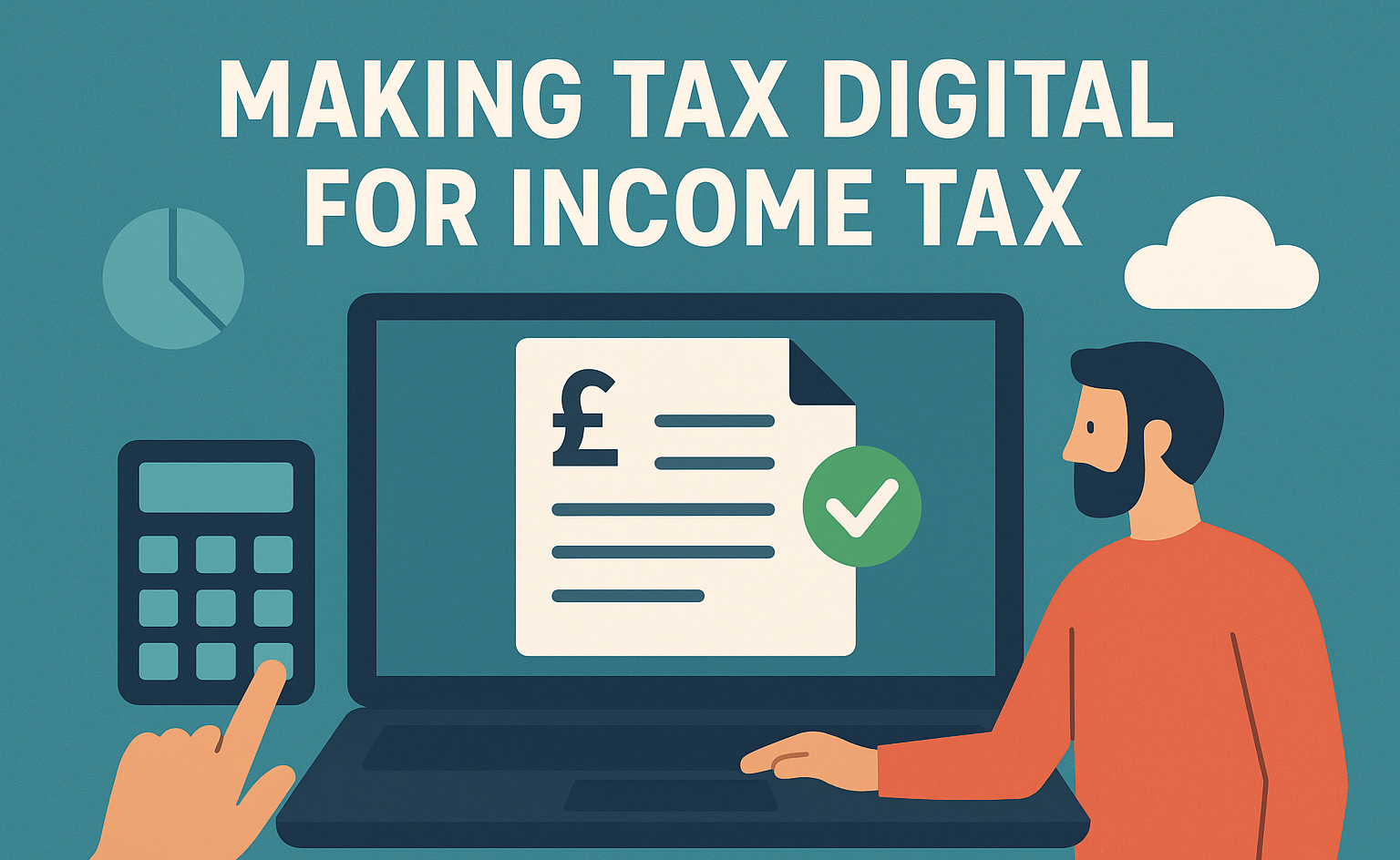November Insights
November Insights
1. Budget Speculation: Are Tax Rises Looming?
The Chancellor, Rachel Reeves, gave a surprise ‘pre-Budget’ speech last week that appeared to pave the way for tax rises in the Budget on 26 November 2025.
What did she say?
Quoting world challenges such as the continuing threat of tariffs, persistent inflation, the increasing cost of government borrowing, and pressures on public finances, the Chancellor acknowledged that productivity in the economy is weaker than previously thought. This all means increasing pressure on revenue for the government.
The Chancellor indicated that her Budget would support businesses in creating jobs, innovating and protecting families from high inflation and interest rates. She further said: “If we are to build the future of Britain together, we will all have to contribute to that effort. Each of us must do our bit …”
This is the clearest indication yet that tax rises are coming for everyone. So, what could this mean for you in the Budget? Let’s explore some of the possibilities.
Changes already due to take effect in 2026 and 2027
There are still some measures announced in Autumn Budget 2024 that have not taken effect yet. These are:
- Capital Gains Tax (CGT): The rate of CGT where Business Asset Disposal Relief (BADR) applies will increase from 14% to 18% from 6 April 2026.
- Inheritance Tax (IHT): Restrictions on 100% relief for business and agricultural property will take effect from 6 April 2026. Unused pension funds and death benefits will be brought into IHT estates from 6 April 2027.
In addition, the new Making Tax Digital for Income Tax (MTD for IT) becomes mandatory for self-employed individuals and landlords with turnover over £50,000 from 6 April 2026. While not a tax increase, there is an increase in compliance costs to those affected.
Predictions for Autumn Budget 2025
Manifesto promises included not increasing National Insurance, Income tax or VAT rates. The October 2024 Corporate Tax Roadmap commits to keeping the small profits rate and marginal relief and not increasing the 25% main rate of corporation tax. Enhanced research and development tax reliefs and the £1 million annual investment allowance for plant and machinery capital allowances are also to be kept.
However, the Chancellor’s speech now casts a doubt on these commitments. Here are a few of the possibilities we could see.
- Freeze on income tax thresholds extended: Income tax thresholds and the tax-free allowance are currently frozen until 6 April 2028. This could now be extended to 5 April 2030, bringing more people into tax.
- Increase to income tax rates: A one or two percentage point increase could be made to income tax rates. To generate sufficient tax revenues, it seems likely that the basic rate of income tax would need to be increased, not just higher rates.
- National Insurance and partnerships: A current hot topic is the suggestion that the government sees partnerships as receiving a tax break because partnership profits are distributed without having to pay 15% employers’ NI. This might result in the introduction of an additional partnership NI contribution for partners. Current speculation suggests this might be limited to LLPs rather than all types of partnership.
- Flat rate relief for pension contributions: Pension savings are currently given tax relief based on the saver’s marginal income tax rate. This could be changed so that all savers receive the same flat rate of income tax relief. This would collect more tax from higher earners.
- Cut Cash ISA saving limits: It was reported earlier in the year that the Chancellor was interested in restricting the amount that can be saved into a cash ISA. Nothing has happened on this so far, however, this could form part of the Budget announcement.
- Increase the BADR rate further: The CGT Business Asset Disposal Rate is already due to increase to 18% from 6 April 2026. This could be increased further. Another CGT possibility is that the CGT rates could be aligned with income tax rates. This might mean the current 18% rate being increased to 20% and the current 24% rate being increased to as much as 40% or 45%.
- Further restrictions to IHT reliefs: Possible measures could include changes to the Potentially Exempt Transfer (PET) regime, reducing or removing taper relief on gifts given three to seven years before the donor’s death, and introducing annual or lifetime limits on exempt giving.
- VAT: There could be a mixture of good and bad news for VAT. One possibility could be a cut to the 5% VAT rate on household energy. However, privately funded healthcare might perhaps be subject to 20% VAT, like private education.
2. Digital ID to Become Mandatory for Right to Work Checks
The government has announced its plan to introduce a new digital ID scheme, which will become the standard way to complete Right to Work checks by the end of the current Parliament.
The digital ID will be available to all UK citizens and legal residents and will be stored securely on mobile phones in the same way as the NHS App or contactless payment methods.
The new system should make compliance simpler for employers carrying out Right to Work checks. Guidance will follow as the roll-out progresses, with a consultation later this year to help shape how the service will work.
The government has confirmed there will be options for people unable to use smartphones, and security will be built in through encryption and authentication technology.
3. Reminder: Companies House Identity Verification Becomes Mandatory from 18 November 2025
From 18 November 2025, identity verification with Companies House will start to be required for company directors and People with Significant Control (PSCs). The measure is intended to improve the reliability of information on the UK’s company register and support efforts to reduce economic crime.
When to verify
The specific date by which each director or PSC needs to verify their identity varies. Companies House says it will contact each company directly with this information. Broadly, the requirements are as follows:
Directors
- Existing directors of companies will need to verify their identity as part of their company’s next confirmation statement from 18 November 2025. This will need to be done for each company if you are a director of more than one entity.
- If you are registering a new company that you will be a director of, you will need to verify your identity as part of the registration process.
PSCs
- If you are a PSC, as well as a director of the same company, you need to verify your identity for your PSC role as well as your director role. Verifying for your PSC role will need to be done within 14 days of the company’s confirmation statement date.
- If you are a PSC but not a director of the same company, then you will be required to verify within the first 14 days of your birth month. For example, if your date of birth is 20 December, your 14-day period begins on 1 December.
- If you become a PSC after 18 November 2025, you need to verify within 14 days of being added to the Companies House register.
How to verify
Verification can be carried out in one of two ways: directly through Companies House using GOV.UK One Login, or via an Authorised Corporate Service Provider (ACSP) such as our firm.
Verified individuals will receive a personal code through the service. They will then need to provide this personal code and a verification statement for each company role they hold.
4. Directors’ Report Requirement to Be Removed
As part of its move to reduce ‘red tape’ and aid business growth, the government has announced plans to remove the requirement for companies to include a directors’ report as part of their annual accounts.
Micro-entities are already exempted from the requirement to include a directors’ report in their accounts; however, it is intended that the requirement will be removed for all companies. It is estimated that this will affect approximately 440,000 companies.
Medium-sized private companies will also be exempted from the requirement to prepare a strategic report as part of their annual report and accounts.
Estimates suggest that these changes could save UK businesses in the region of £230 million each year, and legislation to bring about these changes will be introduced as soon as possible.
5. Renters’ Rights Act Becomes Law in England
The government’s Renters’ Rights Bill has now become law, following Royal Assent last week. The new Act introduces a wide range of changes for private landlords in England.
The details on how and when these new rules will take effect are still to come, but here is a review of some of the key measures that will be introduced.
End of Section 21 evictions
The most notable change is the abolition of Section 21 ‘no fault’ evictions. This doesn’t mean that landlords cannot evict tenants, but they will only be able to do so in certain circumstances.
Tenancy structure
The Act will replace most existing tenancy types with a single system of periodic (rolling) tenancies.
This means that if you use fixed 12 or 24-month contracts, they will no longer be possible. Tenants will be able to give two months’ notice at any time, rather than being tied in for a year or longer.
New ombudsman and registration requirements
A Private Rented Sector Ombudsman will be set up to handle complaints from tenants. Membership will be mandatory for landlords, and the ombudsman’s decisions will be binding.
A new Private Rented Sector Database will also be created. This is to help landlords understand their legal obligations and demonstrate compliance. Tenants will be able to use this when deciding to enter a tenancy agreement. Registration on the database may be necessary before being able to use certain grounds for repossession.
Other measures
Further reforms include:
- A ban on rental bidding. Landlords will be required to advertise a fixed rent and cannot accept offers above this.
- Landlords will not be able to refuse tenants because they have children or receive benefits.
- Tenants will have strengthened rights to request a pet in the property, which the landlord will have to consider and cannot unreasonably refuse.
- Application of the Decent Homes Standard and Awaab’s Law to the private sector, which will impact what is expected with the condition of properties and timescales for repairs.
- Local authority enforcement will be strengthened with the expansion of civil penalties, introducing investigatory powers and requiring local authorities to report on their enforcement activity.
Details on how and when the law will be implemented can be expected over the coming weeks.

Edited by - Peter Burns - Senior Client Manager at England & Company










